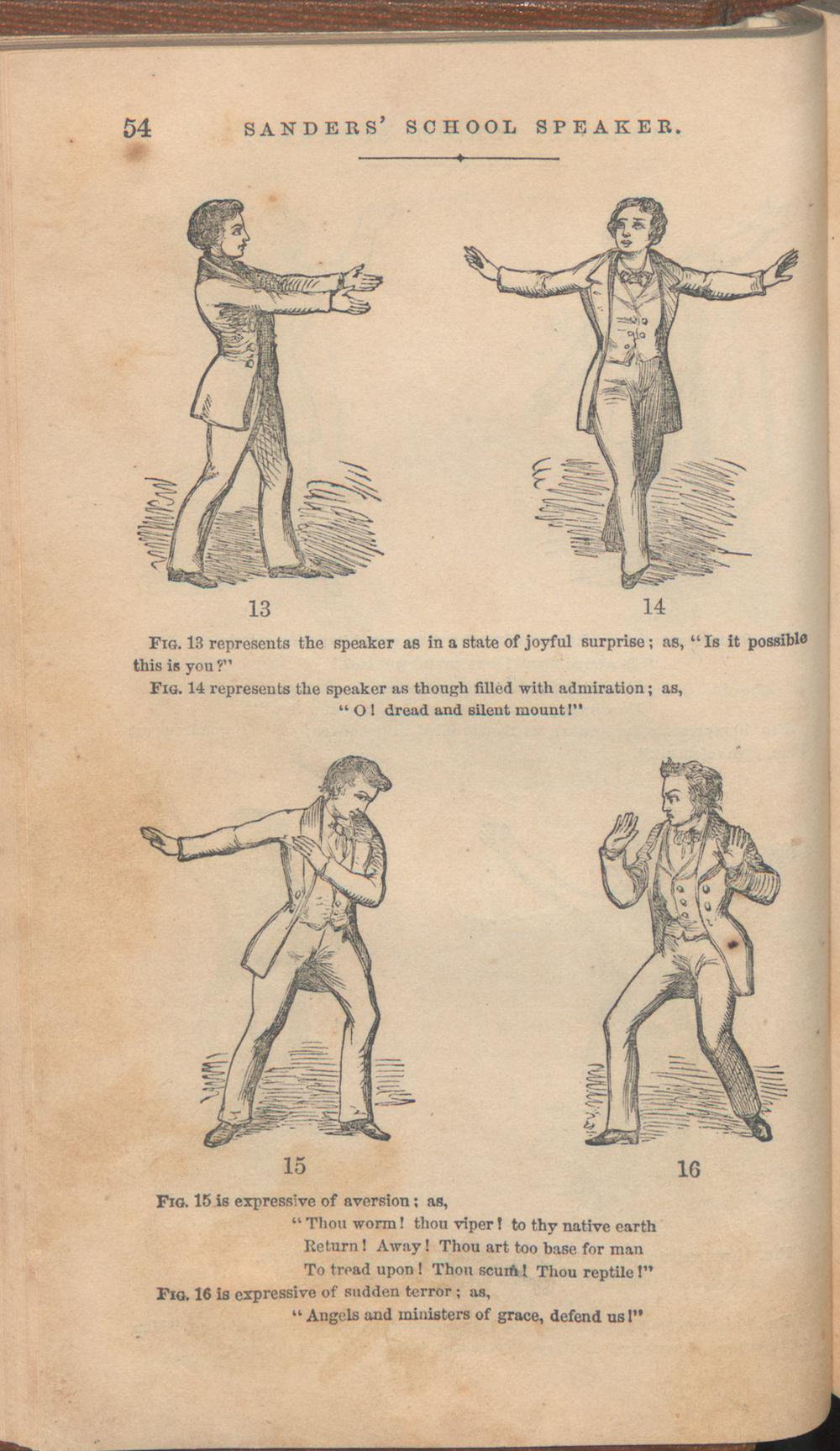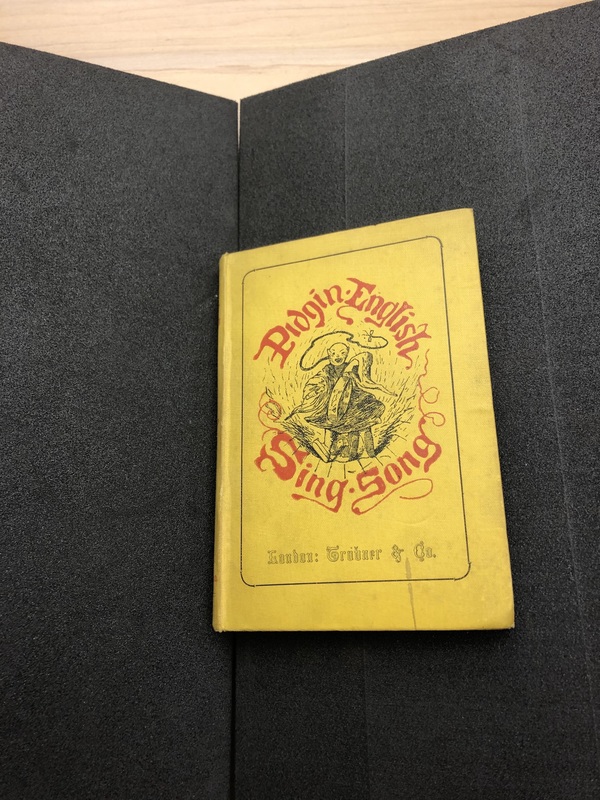Where to next?
Throughout The Prompter, Noah Webster uses phrases, sayings, and labels like "The Under-Lip" to reemphasize class differences both between and within classes. Within the working class, "The Under-Lip" serves to mark the difference between capable and incapable laborers. Meanwhile, the phrase also divides the working class as a whole from the higher class Webster assumes as his readers, those in the position to potentially hire laborers.
Readers insterested in learning about others ways in which language has been used to re-inscribe differences between groups of people should explore the exhibits about Charles Godfrey Leland’s text collection, PIDGIN-ENGLISH SING-SONG or SONG AND STORIES IN THE CHINA-ENGLISH DIALECT With a Vocabulary. While Webster used descriptions of the "Under-Lip" to create a bad-good distinction between laborers with and without under-lips, Leland reemphasizes racial differences by using dialectal differences to create a bad-good racial distinction between Chinese immigrants and Anglo Americans. Webster focuses on class differences, while Leland focuses on racial differences, but both use language (Webster using labels and descriptions; Leland using dialect) to entextualize difference.

